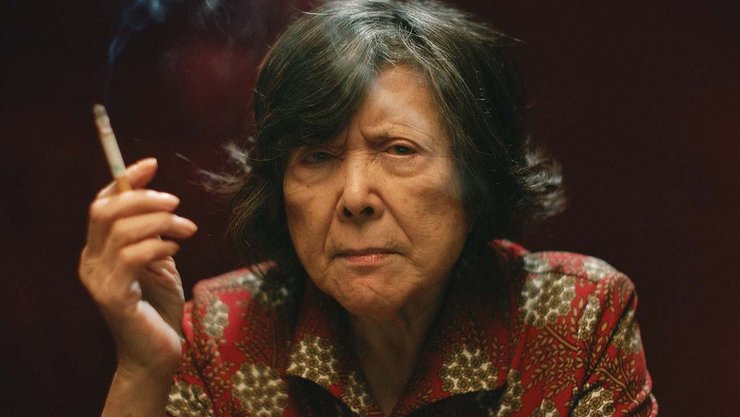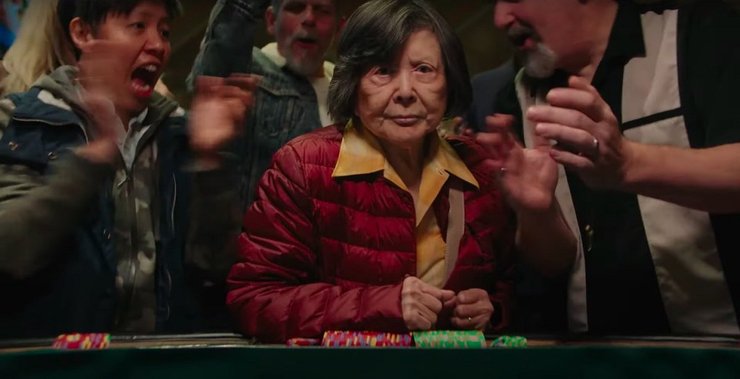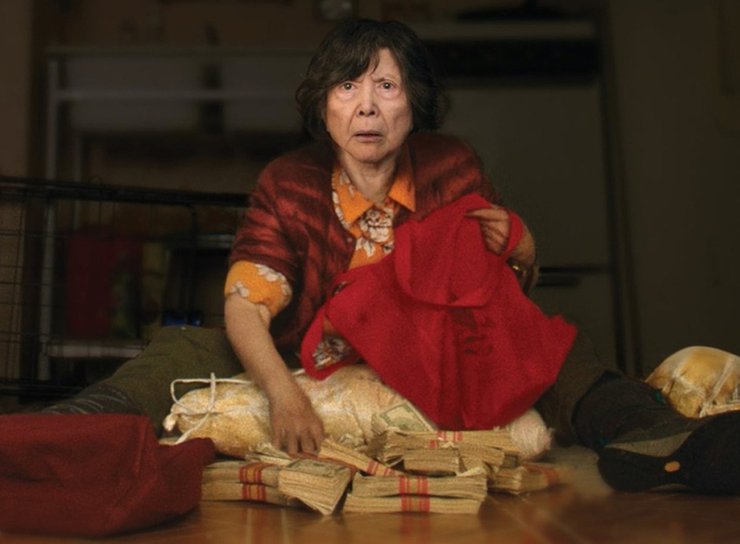This Sasie Sealy’s debut movie that follows a Chinese-American grandmother as she delves into the world of gambling and ends up on the wrong side of luck left audiences shook and positively surprised. Set in New York City's Chinatown, the widow, portrayed by Tsai Chin somehow ends up in the middle of a gang war. The important thing about this movie is the fact that it proves as an exception to two things: the lack of women of certain ages in leading roles and leading roles for Asian women. This is something for which the movie definitely deserves a lot of support on its own.

While the fact that an 80-year-old widow can somehow end up a similar situation is quite bizarre on its own, it’s not that surprising once you get to know her character. She is someone who is eager to live an independent life despite the worry of her family. And things take a turn when she goes to a fortune-teller who tells her that the most thrilling day in her life is approaching her. This leads the grandma to decide that she wants to go into a casino where she decides to go all-in on a blackjack game but by doing so she got a lot of unwanted attention, mainly from some of the local gangsters.
Widowed Grandma Wong doesn't seem so lucky when she gambles away her entire savings. At this point, she is sick of paying for two apartments while her first-generation son wants her to move in with his family, including two thoroughly Westernized grandchildren, in Brooklyn. But after initially killing it at the roulette wheel, Grandma loses everything and staggers back to the courtesy bus in a daze.

But her fortunes appear to change when on the bus home, when shortly afterward she realizes, with a kind of karmic satisfaction, that he’s stopped breathing. The man’s winnings quite literally fall into her lap, and grandma makes the fateful decision to divest the corpse of its earthly belongings. Here Chin expertly delivers a series of sharp looks and startled glares that take the scene to another level. However, the money belongs to New York's Chinese mob and she now finds herself in a completely unexpected and dangerous situation.
What follows is familiar from so many Coen outings, to which the director has acknowledged a debt, but it’s distinguished by the character at the center, who comes off less like a greedy rube and more like an old-fashioned, if forbidding, heroine. Grandma returns to her apartment the next day and finds two thugs in shiny suits lolling about in her living room.

While seeking protection, she turns to a rival gang, and Sealy and co-writer Angela Cheng have fun with the particulars of the Chinese-American underworld, to which grandma gains access to by asking a local street hawker for a specific brand of a designer handbag. She’s swiftly ushered to the back of a shop, where she proceeds to ruthlessly barter down the price of protection services, bamboozling the young goons who just want to get back to their video game. Production designer Cassia Maher is aided here and elsewhere by the use of real locations, from Chinatown mahjong parlors and hair salons to Connecticut’s Foxwoods Resort Casino. And it isn’t long after that desperate to protect herself, grandma employs the services of a bodyguard, portrayed by Corey Ha from a rival gang and soon finds herself in the middle of a Chinatown gang war.
Interestingly enough, the film features hardly any spoken English at all and very amusingly captures a hermetic immigrant culture in which nobody so much as considers calling the police. The filmmaker, whose credits include several shorts as well as work on ABC’s Fresh Off the Boat, demonstrates a deft control of tone throughout, balancing deadpan cracks with something more wistful.
The film’s tone of comic misadventure is accompanied by Andrew Orkin’s jazzy music, but it doesn’t preclude moments of genuine pathos. Grandma delivers a monologue full of love and frustration for the dead husband she worked alongside for 40 years, seven days a week, but who left her penniless. The director and her cinematographer Eduardo Enrique Mayén never stray far from their leading lady’s face, and the Tianjin-born Chin delivers a performance of impressive minimalism, one that feels true rather than ingratiating.
Let’s keep updating the latest movies and news on the Movies section at Gurugamer.com!










Comments